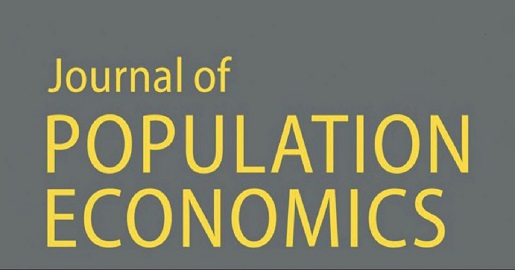Garima Rastogi (University of Oxford) and Anisha Sharma (Ashoka University) receive the 2023 Kuznets Prize for their article “Unwanted daughters: the unintended consequences of a ban on sex-selective abortions on the educational attainment of women”, which was published in the Journal of Population Economics (2022), 35, pp. 1473-1516. The annual prize honors the best article published in the Journal of Population Economics in the previous year. The prize will be awarded in a public online event during the GLO Global Conference on December 1, 2022.


Biographical Abstracts
Garima Rastogi is a student in the MPhil in Economics program at the University of Oxford. She has completed her undergraduate education with honours from Ashoka University, India. Her research is primarily in applied microeconomics. She uses empirical methods to explore questions at the intersection of gender, education, and health, in the context of developing countries. She is currently working on her dissertation, which explores the role of a coercive sterilization policy in India on current family-planning practices.
Anisha Sharma is a development economist at Ashoka University, India. Her research interests are in labour economics, the economics of health and education, and public policy, with a particular interest in gender gaps across these dimensions. One strand of her research focuses how people make decisions about human capital investments and how gendered social norms influence their choices. Another strand of her research relates to the constraints on firms from hiring women, as well as the socioeconomic factors that constrain women’s labour supply. Dr. Sharma received a PhD in Economics from the University of Oxford, where she was a Rhodes Scholar.
Paper Abstract
Video of paper presentation.
We study whether legal restrictions on prenatal discrimination against females leads to a shift by parents towards postnatal discrimination, focusing on the impact on educational attainment. We exploit the differentially timed introduction of a ban on sex-selective abortions across states in India. We find that a legal restriction on abortions led to an increase in the number of females born, as well as a widening in the gender gap in educational attainment. Females born in states affected by the ban are 2.3, 3.5, and 3.2 percentage points less likely to complete grade 10, complete grade 12, and enter university, respectively, relative to males. These effects are concentrated among non-wealthy households that lacked the resources to evade the ban. Investigating mechanisms, we find that the relative reduction in investments in female education was not driven by family size but because surviving females became relatively unwanted, whereas surviving males became relatively more valued, leading to an increasing concentration of household resources on them. Discrimination is amplified among higher-order births and among females with relatively few sisters. Finally, these negative effects exist despite the existence of a marriage market channel through which parents increase investments in their daughters’ education to increase the probability that they make a high-quality match. This suggests that policymakers need to address the unintended welfare consequences of interventions aimed at promoting gender equity.
More about the Kuznets Prize & previous prize winners.
Further research & video presentations on abortions in the Journal of Population Economics:
- Consequences of Abortion Bans in India & Romania & more research links.
- Regulating Abortions in the United States & more research links.
Ends;

